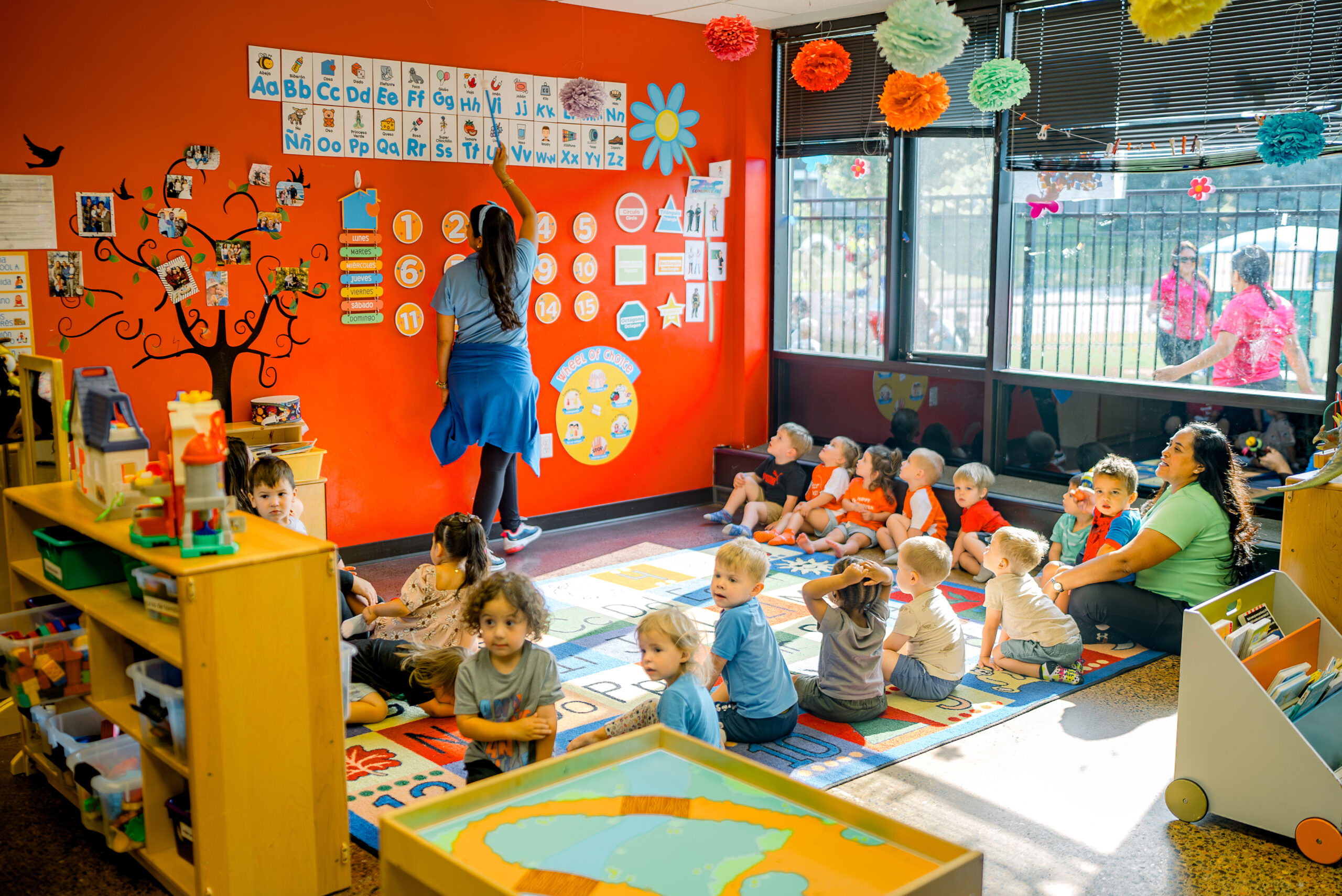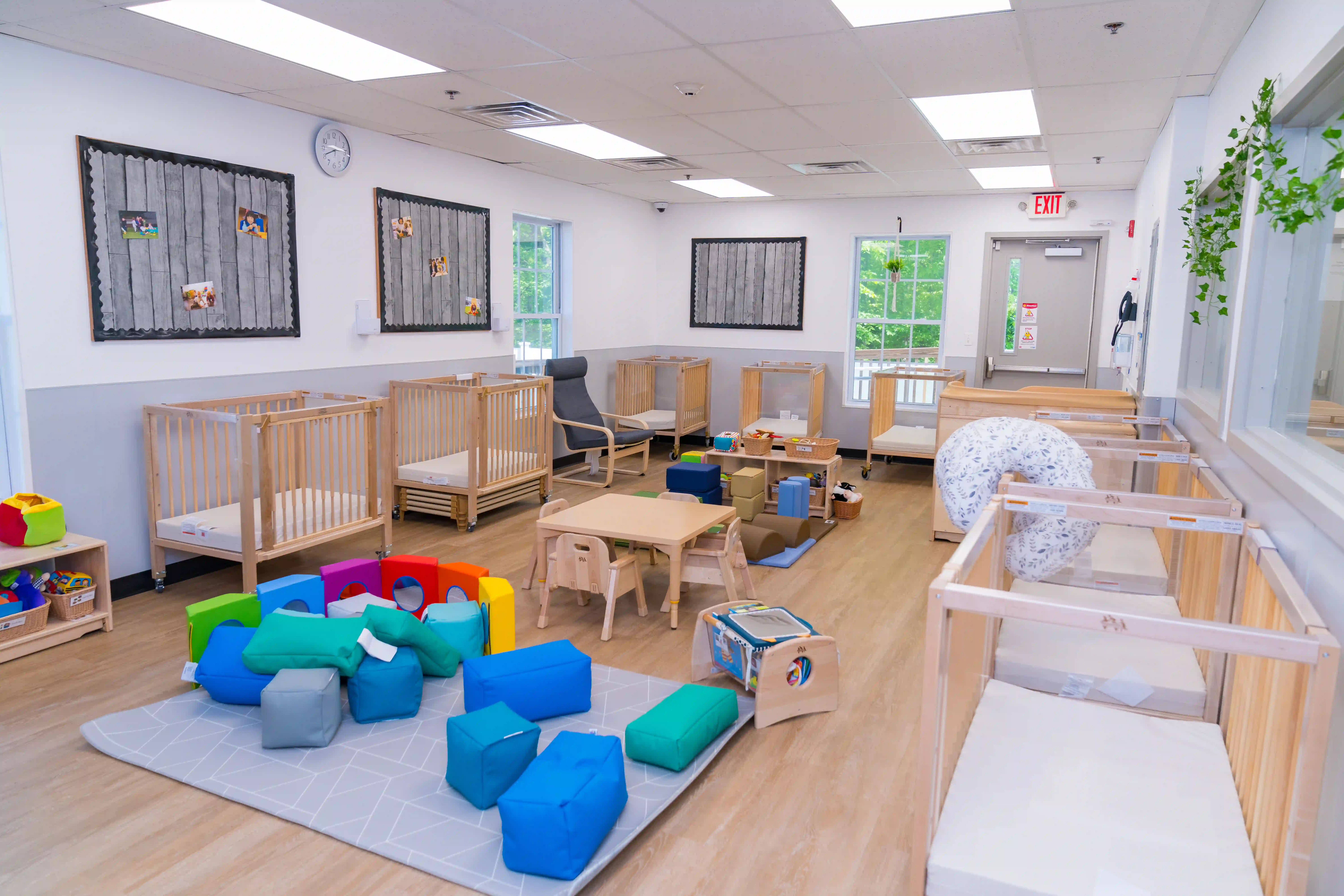How Childcare North York Promotes Early Learning and Social Skills
Wiki Article
The Function of Day Care in Fostering Social Skills and Early Understanding
Daycare acts as a substantial atmosphere for children, assisting in essential social interactions that promote early understanding. In this structured setup, children engage with caretakers and peers, developing vital communication and cooperation skills. As they browse play and numerous activities, they learn to settle problems and build emotional knowledge. Comprehending the nuances of these communications discloses the profound influence day care has on a child's advancement, forming their future connections and scholastic preparedness. What specific abilities do children get in this setup?The Significance of Social Communication in Childcare
While lots of moms and dads recognize the value of early youth education and learning, the duty of social communication in daycare is typically ignored. Day care setups provide children with important possibilities to involve with peers, cultivating essential social abilities. During these formative years, kids learn to navigate various social dynamics, such as sharing, teamwork, and conflict resolution. Connecting with diverse age teams and characters improves their ability to adjust to various atmospheres and establish compassion in the direction of others.
Building Communication Skills With Play
Play functions as an effective tool for youngsters to build important interaction skills in day care setups. With various play activities, kids involve in conversations, express their ideas, and find out to listen to others. Parlor games, as an example, encourage them to make use of language in various contexts, advertising vocabulary growth and understanding of social hints.
Additionally, narration during play permits children to communicate feelings and ideas, aiding them develop narrative skills and confidence in their spoken expressions. In general, play not just functions as an enjoyable leisure activity however likewise as a crucial platform for establishing the communication skills necessary for effective social interactions in later life.
Motivating Participation and Synergy
Participation and teamwork are vital abilities that youngsters can grow in day care settings. Via various group activities, such as developing tasks or joint games, kids discover to share obligations and pursue usual objectives. These interactions cultivate an understanding of the value of paying attention to others, negotiating duties, and endangering when essential.In childcare setups, caretakers usually develop possibilities for youngsters to participate in team effort by motivating them to participate in group tasks. This not only aids kids create social bonds yet additionally cultivates a feeling of belonging and area.
As they browse these participating experiences, youngsters get important insights right into the dynamics of collaborating with peers. They discover to appreciate varied viewpoints and recognize that each member contributes uniquely to the group initiative. Eventually, these early lessons together and synergy lay the groundwork for much healthier connections and reliable collaboration in future social and academic setups.
Structured Knowing Activities and Cognitive Growth
Structured knowing activities play an important duty in fostering cognitive advancement in young children (Childcare North York). These tasks, that include puzzles, storytelling, and hands-on experiments, stimulate vital reasoning and analytic abilities. In a daycare setup, organized understanding encourages youngsters to involve with their peers, enhancing their capability to process info and recognize various concepts
Through directed play and interactive tasks, kids create fundamental abilities such as numeracy and proficiency. Tasks centered around numbers can help youngsters understand mathematical ideas, while storytelling improves language procurement and understanding. Additionally, structured learning allows educators to assess developmental progress and dressmaker tasks to individual learning demands.

Including a diverse series of organized activities not just promotes cognitive growth but also prepares youngsters for future academic success. By providing a balanced setting that promotes exploration and questions, day care programs play a crucial duty in shaping the cognitive capacities of young students.
Fostering Emotional Knowledge and Confidence
Psychological intelligence and self-confidence are essential elements of a child's growth, complementing the cognitive skills fostered via structured learning tasks. In childcare settings, children are supplied with chances to share their feelings and take part in social communications, which are critical for constructing emotional awareness. With led play and team tasks, children discover to recognize their sensations, acknowledge those of others, and establish compassion.Interaction with caretakers and peers helps to grow self-worth and strength. Positive reinforcement and motivation from adults encourage youngsters to take risks and face challenges, promoting a feeling of success. As they browse social characteristics, kids build confidence in their capabilities to interact, team up, and settle conflicts - Child Care Center. This caring setting allows for the progressive advancement of psychological knowledge, which is necessary for future social relationships and overall wellness. Because of this, day care plays a considerable function in promoting both psychological knowledge and self-confidence in young youngsters
Regularly Asked Concerns
Exactly How Can Parents Pick the Right Daycare for Their Youngster?
Moms and dads need to consider elements such as place, staff qualifications, safety criteria, educational program, and assesses from various other parents when selecting the ideal childcare for their youngster, ensuring it Childcare Near Me lines up with their child's developing needs and family members worths.
What Age Is Finest for Beginning Day Care?

Exactly How Does Childcare Influence Kid's Actions in your home?
Childcare often favorably affects kids's actions in the house by enhancing social skills, promoting freedom, and motivating psychological regulation (Childcare Near Me). Consequently, youngsters may show improved communication and collaboration, resulting in more harmonious family members dynamicsAre There Any Downsides to Daycare Participation?
Yes, there are drawbacks to day care presence, including potential splitting up anxiousness, direct exposure to ailments, and inconsistent caregiving. These factors can affect a youngster's emotional wellness and change in your home, influencing general household dynamics.Just How Can Moms And Dads Assistance Social Skills Learned at Daycare?
Moms and dads can sustain social skills learned at daycare by facilitating playdates, urging participating activities, modeling favorable interactions, talking about feelings, and enhancing sharing and interaction in the house, therefore improving their child's social growth and confidence.Day care serves as a significant setting for young kids, helping with essential social communications that promote very early knowing. Childcare settings provide kids with invaluable chances to involve with peers, cultivating necessary social abilities. Play offers as a powerful medium for children to build vital interaction abilities in day care settings. In day care setups, kids are supplied with possibilities to reveal their feelings and involve in social communications, which are important for building psychological awareness. Childcare typically positively affects children's habits at home by boosting social skills, advertising freedom, and encouraging emotional regulation.
Report this wiki page